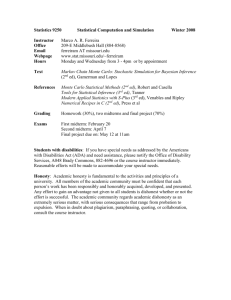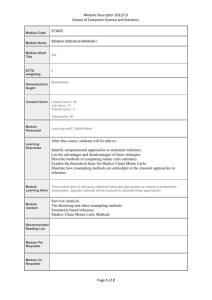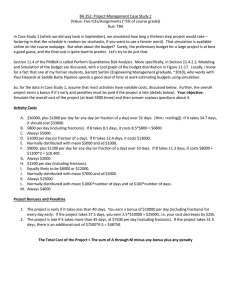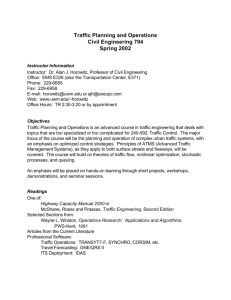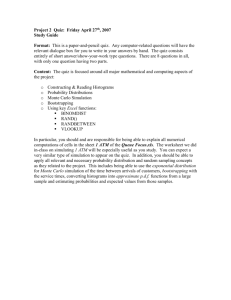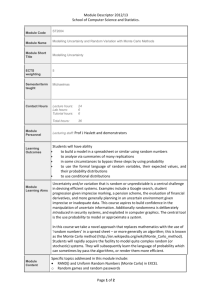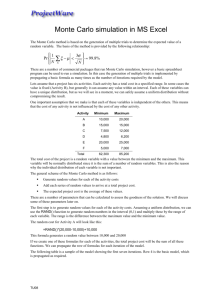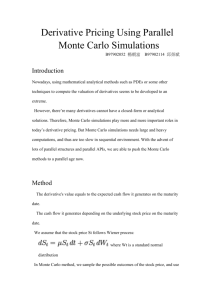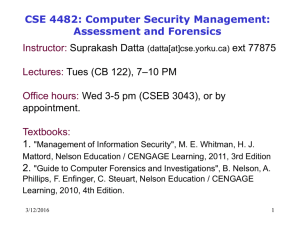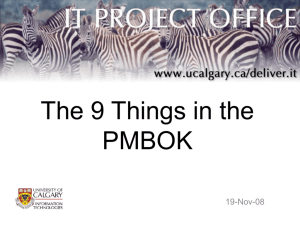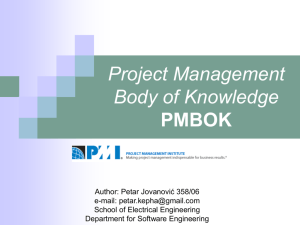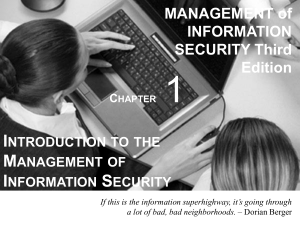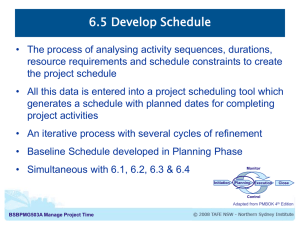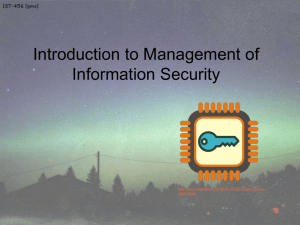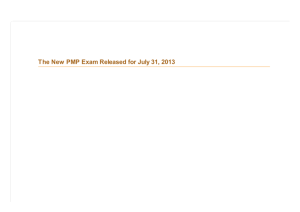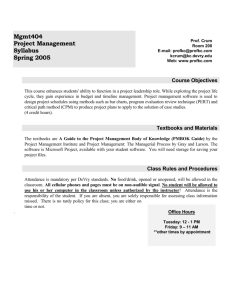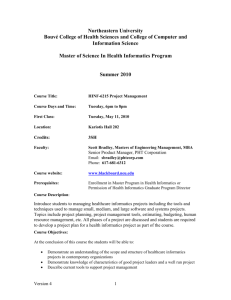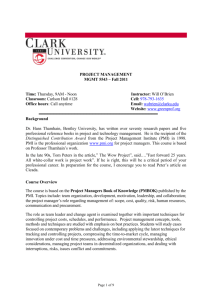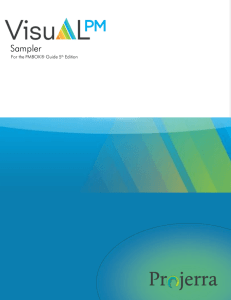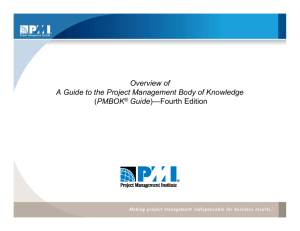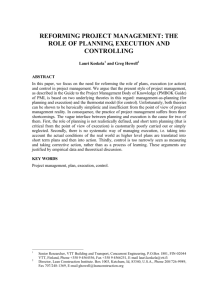syllabus - nau.edu - Northern Arizona University
advertisement
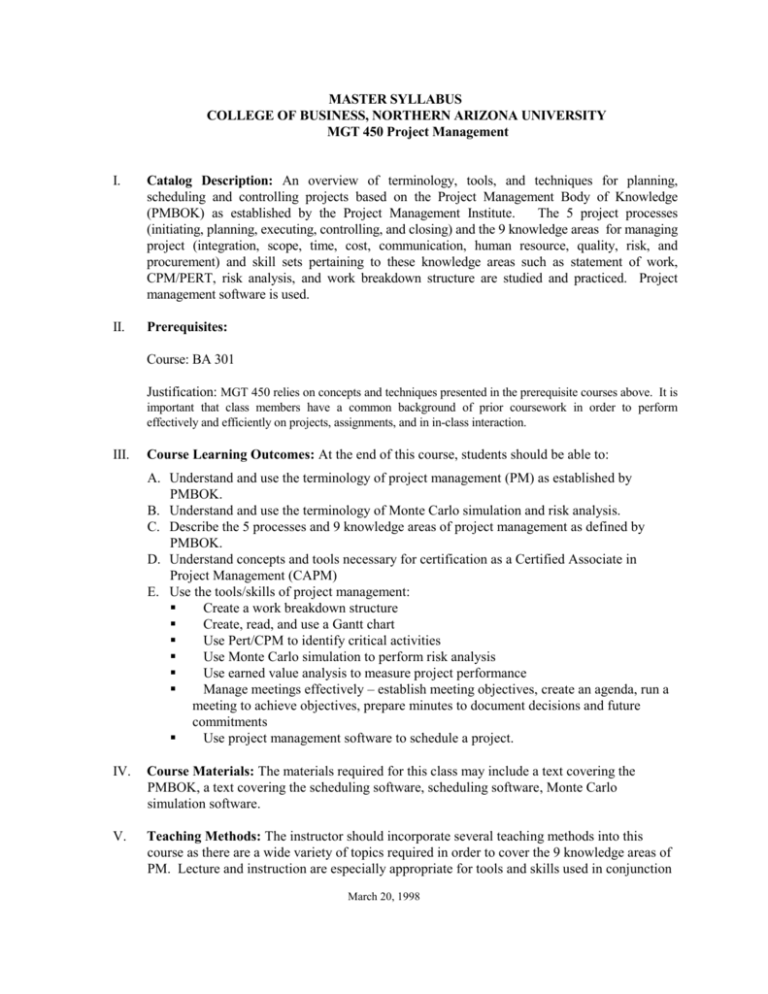
MASTER SYLLABUS COLLEGE OF BUSINESS, NORTHERN ARIZONA UNIVERSITY MGT 450 Project Management I. Catalog Description: An overview of terminology, tools, and techniques for planning, scheduling and controlling projects based on the Project Management Body of Knowledge (PMBOK) as established by the Project Management Institute. The 5 project processes (initiating, planning, executing, controlling, and closing) and the 9 knowledge areas for managing project (integration, scope, time, cost, communication, human resource, quality, risk, and procurement) and skill sets pertaining to these knowledge areas such as statement of work, CPM/PERT, risk analysis, and work breakdown structure are studied and practiced. Project management software is used. II. Prerequisites: Course: BA 301 Justification: MGT 450 relies on concepts and techniques presented in the prerequisite courses above. It is important that class members have a common background of prior coursework in order to perform effectively and efficiently on projects, assignments, and in in-class interaction. III. Course Learning Outcomes: At the end of this course, students should be able to: A. Understand and use the terminology of project management (PM) as established by PMBOK. B. Understand and use the terminology of Monte Carlo simulation and risk analysis. C. Describe the 5 processes and 9 knowledge areas of project management as defined by PMBOK. D. Understand concepts and tools necessary for certification as a Certified Associate in Project Management (CAPM) E. Use the tools/skills of project management: Create a work breakdown structure Create, read, and use a Gantt chart Use Pert/CPM to identify critical activities Use Monte Carlo simulation to perform risk analysis Use earned value analysis to measure project performance Manage meetings effectively – establish meeting objectives, create an agenda, run a meeting to achieve objectives, prepare minutes to document decisions and future commitments Use project management software to schedule a project. IV. Course Materials: The materials required for this class may include a text covering the PMBOK, a text covering the scheduling software, scheduling software, Monte Carlo simulation software. V. Teaching Methods: The instructor should incorporate several teaching methods into this course as there are a wide variety of topics required in order to cover the 9 knowledge areas of PM. Lecture and instruction are especially appropriate for tools and skills used in conjunction March 20, 1998 with assignments that allow students to practice these skills. Mini-cases and discussion are appropriate for communication management and team skills in conjunction with a project to allow students to practice these skills. Guest speakers especially those with project management experience are strongly suggested. VI. Evaluation Tools: Exams are appropriate to measure the student’s mastery of vocabulary and descriptive information contained in PMBOK. Computer assignments should be used assess students experience with scheduling tools and Monte Carlo simulation. A graded group project to assess students ability to work in teams, write a project scope statement, create a project work breakdown structure, effectively manage meetings, create a project schedule, and identify and analyze project risks. Grading Scale: 90-100% 80-89% 70-79% 60-69% Below 59% = = = = = A B C D F VII. Course Content: A. Course Topics: 1. 5 PM life-cycle processes Initiating Planning Executing Monitoring and controlling Closing 2. 9 knowledge areas of PM as defined by PMBOK Integration management Scope management Time management Cost management Communication management Human resource management Quality management Risk management Procurement management 3. Monte Carlos simulation and risk analysis 4. Meeting management 5. Professional responsibility of the project manager B. Perspectives for Business Decisions: Minimum Number of 50 Minute Periods Devoted to Topic International/Global 1 March 20, 1998 Required Graded Work Other Than Exams? Ethical Issues 1 Political Issues 1 Social Issues Legal/Regulatory Issues 1 Yes Technology Issues 1 Yes Demographic Diversity 1 Environmental Issues C. Interdisciplinary Skills: Graded Work Other Than Exams? Oral Communications Yes Written Communications Yes Critical Thinking Yes Working in Teams Yes March 20, 1998
